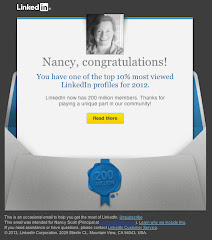Marketing legend Roger Craver opened last Thursday’s Fundraising Success Virtual Conference with this question: What If There Were No New Donors? Roger figured the solution would be to start loving the donors you have.
His longer message (found here) advised marketers to focus on retention and other strategies to make current customers/donors feel special. In other words, Dance With the One That Brung Ya.
Roger’s point adds up to the second time today that CUSTOMER SERVICE has blared across the marketing radar.
This morning I tweeted a terrific little article titled “Twenty customer care actions that build sales.” None of the recommended behaviors is new or surprising. Yet, how many of these “must-dos” actually get done?
Marketers can do better.
Maybe you believe the economy will recover or maybe you don’t. Whichever: You’ve got everything to gain and nothing to lose by shifting resources to the folks who already do business with you.
More thoughts on shifting marketing attention to customers:
• On June 2, 1to1 Media is offering a free webinar, Using Customer Intelligence as a Strategic Weapon. Note: This is about customer intelligence, not acquisition.
• Marketing Vox reports that -- if Facebook advertisers revolt against privacy intrusions of their customers -- the money drain could cripple Facebook. Maybe Facebook will walk away with a slight limp, but if a monster this big can be brought down, well... what does that say about the rest of us?
• Harvard Business Review has advice for online communities. All deal with customer initiatives.
-- scrubbed by Marketing Brillo
